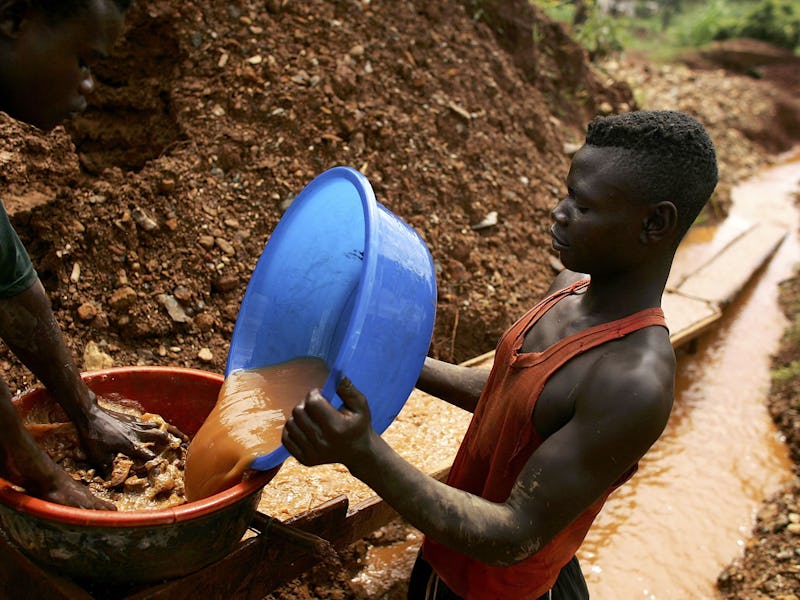Apple and Google Just Aced a Major Ethics Test in Africa, Says New Report
The companies are leading the way in the Congo.

Apple and Google have topped newly released rankings for their work ensuring the minerals used in their products don’t come from war zones. Apple received especially high marks from the Enough Project’s 2017 report on which companies have kept their African supply chain conflict-free.
The Democratic Republic of the Congo has faced decades of civil war, with much of the fighting centered in the country’s resource-rich eastern regions. Warlords use profits from mining operations to help fund their activities. The four most common of these conflict minerals are tin, tungsten, tantalum, and gold, often abbreviated as 3TG.
All four of those minerals are used in consumer electronics, which means companies like Apple and Google are in a unique position to stop the export of conflict resources. As the report notes, the companies’ solution has not been just to abandon the Congo entirely, but rather to make a concerted effort to support and build local mining operations that are demonstrated to be free of warlord interference.
The report also calls on all companies to publicly report their due diligence work with conflict minerals, to monitor mines continuously to ensure they remain conflict-free instead of checking annually, and to join agreements that hold them accountable for any conflict minerals discovered in their supply chain.
That last step is especially important, the report says, because there’s no guarantee legal requirements will remain in place to regulate this market. Republicans have repeatedly sought to repeal the U.S. conflict resources law, while the Congolese government faces long-term political crises and instability that undermine its ability to contend with local warlords. As such, companies’ own, frequently self-directed efforts are the best option to keep the supply chain conflict-free.
The Enough Project, which monitors warlord activities throughout central Africa, gave Apple 114 points out of 120 for its efforts — not even including eight points of extra credit — while Google was the only other company of the 20 ranked to break the century mark with a score of 102.5. Next up were HP, Microsoft, and Intel, all of which scored in the 70s.
Generally speaking, the 10 consumer electronics companies scored better than jewelry companies, though both Samsung and Toshiba had scores below 20 points. All of these rankings apply exclusively to the Congo — what good or bad companies did elsewhere, either in other African countries or beyond, wasn’t factored into the assessment.
Overall, the report praised companies for making significant progress since the Enough Project began ranking companies in 2010, though it stressed more work was needed not just to stop the spread of conflict resources but also to improve the lives of local miners.